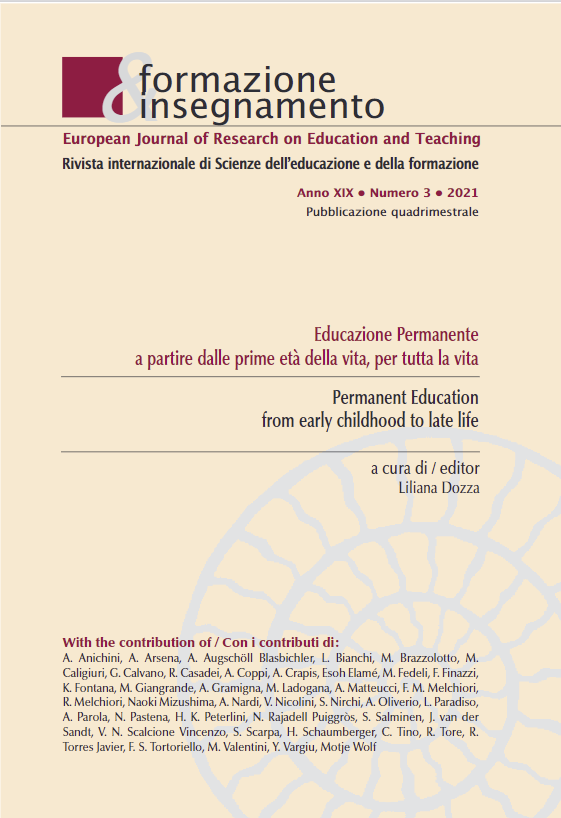Itineraries and narrative dimensions in pre-school and primary school: analysis of functions, risks and educational abuses
DOI:
https://doi.org/10.7346/-fei-XIX-03-21_11Abstract
The article analyses the phenomenon of self-narration, taking a multi-perspective view of the epistemic principles that support it on a philosophicalpedagogical level, identifying relationships and continuity with care. Narrative is analysed as a primary ontological phenomenon that accompanies the transformation of being and the development of the life of the mind in the different socio-educational contexts of family, school and society. Narrative is regarded as a relational and educational process that underpins social life at school and requires pedagogical and educational planning. At the end, attention is focused on the directing role of the teacher-educator in order to analyse practices that promote and those, on the other hand, that prevent the child from expressing him/herself to the point of experiences of educational abuse.
Downloads
Published
How to Cite
Issue
Section
License
Copyright (c) 2021 Pensa MultiMedia

This work is licensed under a Creative Commons Attribution 4.0 International License.
Formazione & insegnamento is distributed under Attribution 4.0 International (CC BY 4.0).
For further details, please refer to our Repository & Archiving Policy, as well as our Copyright & Licensing Terms.





